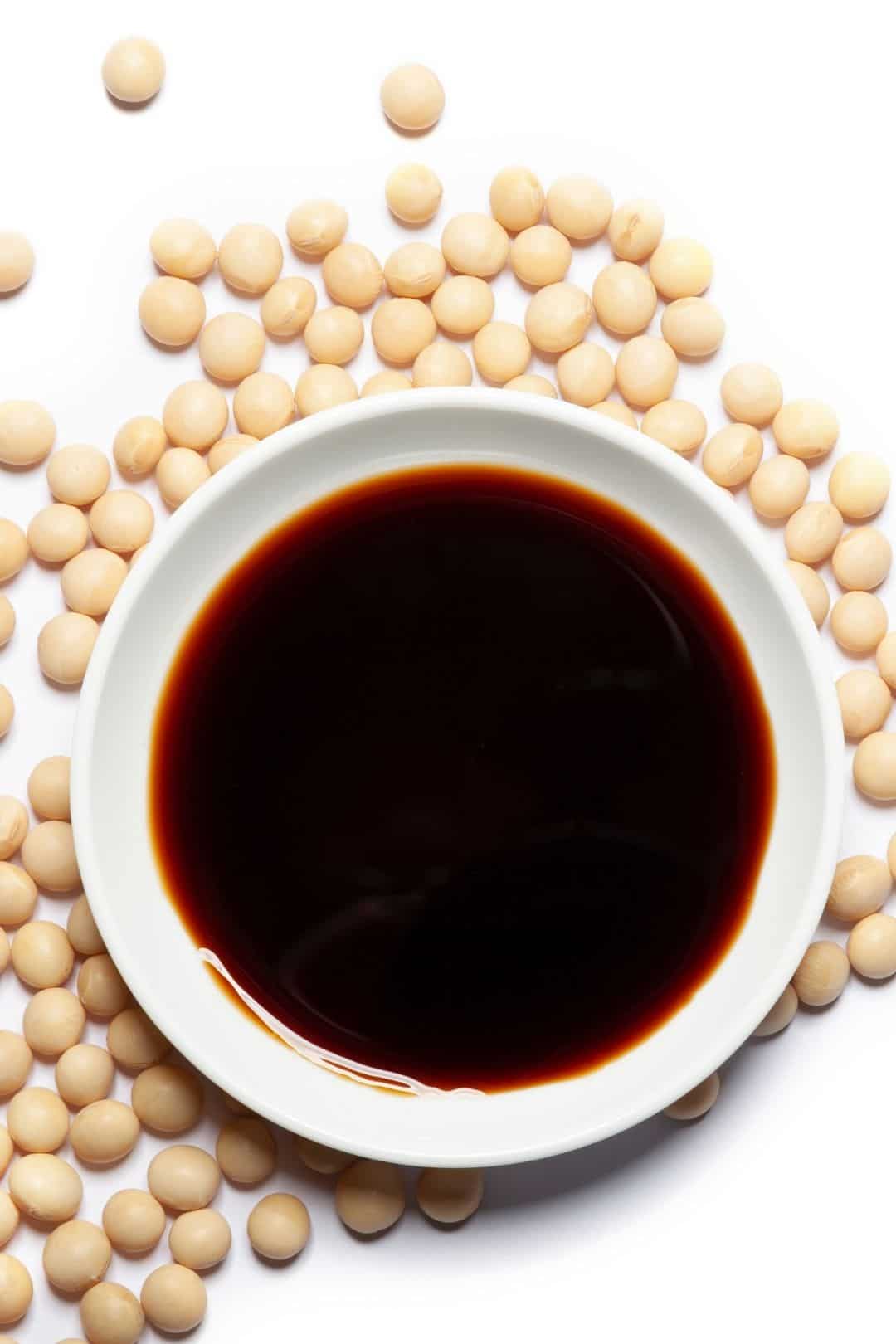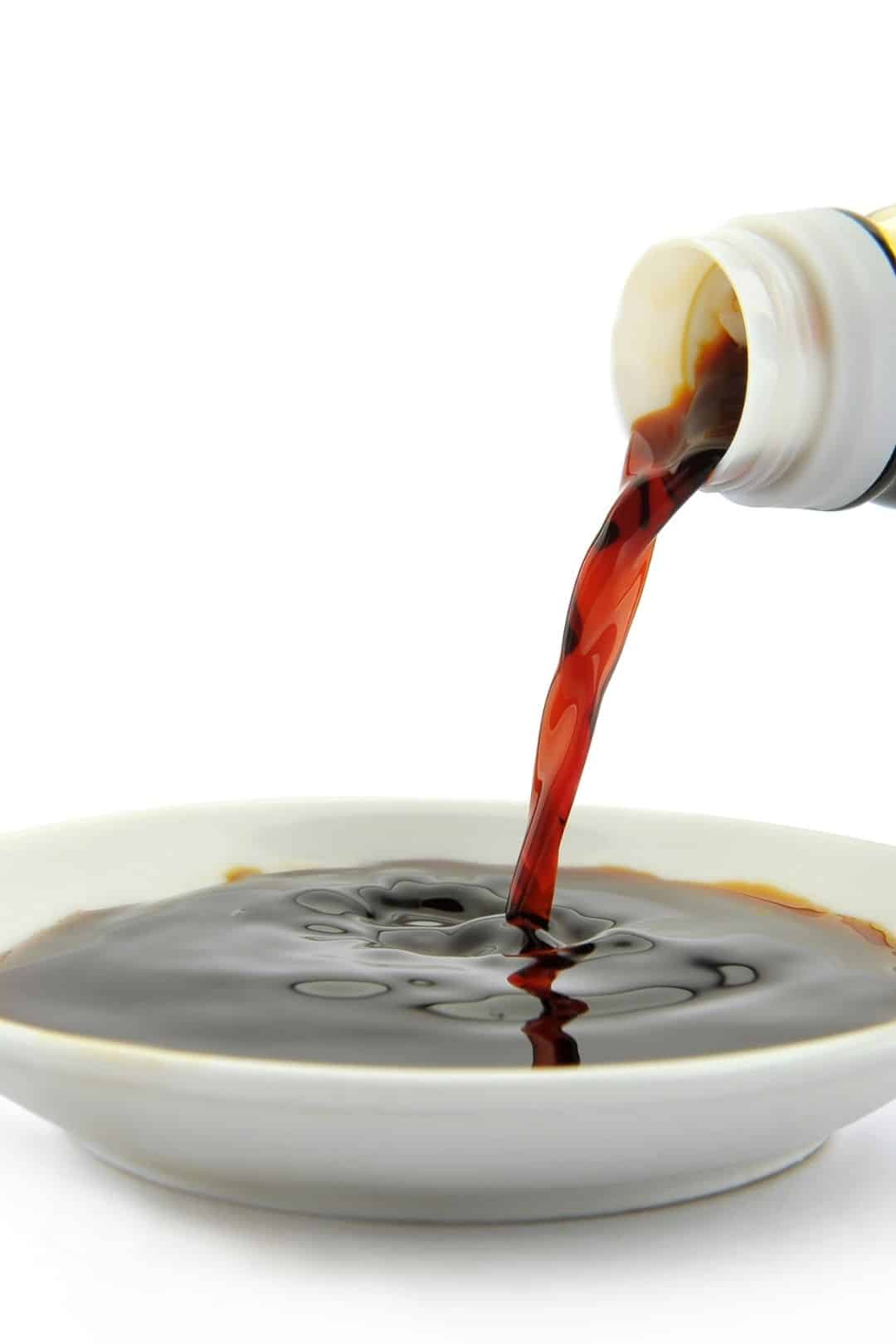If you’re following a low-carb or keto lifestyle and wondering whether soy sauce fits into your daily macros, you’re not alone. Is Soy Sauce Keto-Friendly? That’s one of the most common questions for anyone trying to stay in ketosis while still enjoying flavorful meals.
In this post, we’ll break down the carb content of soy sauce, explain which types are best for a ketogenic diet, and share the top low-carb soy sauce alternatives to help you add flavor to your meals without sacrificing your goals.

The ketogenic diet has skyrocketed in popularity for its ability to support weight loss, reduce cravings, and improve overall health by shifting your body into a state of ketosis. This low-carb, high-fat diet encourages your body to burn fat for fuel instead of carbohydrates. To stay in ketosis, however, it’s crucial to monitor your daily carbohydrate intake—even from small ingredients like condiments.
So, where does soy sauce fit in? Is it keto-approved or too high in carbs? In this article, we’ll explore whether soy sauce is keto, break down the carb count in different types of soy sauce, and introduce some of the best keto-friendly soy sauce alternatives to keep your meals flavorful without compromising your goals.
- 1 What Is Soy Sauce?
- 2 Is Soy Sauce Keto-Friendly?
- 3 Different Types of Soy Sauce and Their Keto Compatibility
- 4 Best Keto Soy Sauce Substitutes
- 5 Soy Sauce Carbs: Can You Have Soy Sauce on Keto?
- 6 Carbohydrates in Soy Sauce
- 7 Health Benefits of Eating Soy Sauce
- 8 How To Store Soy Sauce
- 9 Using Soy Sauce in a Keto Diet
- 10 Conclusion
- 11 Best Keto Recipes With Soy Sauce
What Is Soy Sauce?
Soy sauce is one of the oldest and most widely used condiments in the world, with a history dating back over 2,500 years to ancient China. Originally created through fermentation, soy sauce gradually spread across Asia—particularly to Japan, Korea, and Thailand—and eventually made its way into Western cuisine as a staple for seasoning and marinating.
Traditionally, soy sauce is made by fermenting soybeans, wheat (in most varieties), water, and salt. The result is a rich, salty, umami-packed liquid that enhances the flavor of countless dishes, from stir-fries to dipping sauces.
Despite its similar appearance across brands and types, soy sauce can vary in flavor intensity, saltiness, and consistency, depending on how it’s made and where it’s from. Some versions are thicker and sweeter, while others are thinner and saltier.
Now that you know what soy sauce is and how it’s made, let’s take a closer look at whether it fits into a low-carb or ketogenic lifestyle, how many carbs are in soy sauce, and what keto-friendly soy sauce alternatives you can try.
Is Soy Sauce Keto-Friendly?
Yes, soy sauce can be keto-friendly—if you choose the right type. Most regular soy sauces contain about 1 gram of net carbs per tablespoon, making them generally acceptable for those following a low-carb or ketogenic diet.
If you’re not sensitive to soy, wheat, or gluten, you can comfortably incorporate regular soy sauce into your keto meals. Just be sure to use it in moderation, especially if you’re tracking net carb intake closely.
However, not all soy sauces are created equal. Many sweet or flavored varieties contain added sugars or starches, which can increase the carb content significantly. These sweet versions are not keto-approved and should be avoided.
Always check the nutrition label to verify the carbohydrate content per serving. The number of carbs can vary widely depending on the brand and style, such as light soy sauce, dark soy sauce, or sweet soy sauce.
Different Types of Soy Sauce and Their Keto Compatibility
When following a low-carb or keto lifestyle, understanding the types of soy sauce available is essential. While some are perfectly keto-friendly, others can quickly knock you out of ketosis due to added sugars or high carb content. Here’s a breakdown:
1. Light Soy Sauce – Light soy sauce is the most common type found in stores and used in everyday cooking. It’s a thin, salty brown liquid made through fermentation. With about 1 gram of net carbs per tablespoon, it’s generally considered safe for keto diets.
- Keto-friendly: Yes
- Best used for: Stir-fries, marinades, dipping sauces
2. Dark Soy Sauce – This variety is thicker and slightly sweet due to added ingredients like molasses or caramel. It has a richer flavor and deeper color but can contain more carbohydrates and sugars, depending on the brand.
- Keto-friendly: Use with caution (check for added sugars)
- Best used for: Glazes, braised dishes, richer sauces
3. Low Sodium Soy Sauce – Ideal for those watching sodium intake, low sodium versions often have a similar flavor to regular soy sauce. However, some are produced through chemical hydrolysis, not fermentation, which can affect both flavor and carb count. Always read the label.
- Keto-friendly: Usually, but verify carb content
- Best used for: General cooking where salt reduction is needed
4. Tamari – Tamari is a Japanese soy sauce made without wheat, making it naturally gluten-free. It has a smoother, less salty flavor than light soy sauce and is typically low in carbs.
- Keto-friendly: Yes, and suitable for gluten-free diets
- Best used for: Sushi, dipping, sauces, soups
5. Sweet Soy Sauce (Kecap Manis) – This syrupy, sweet soy sauce is made with added sugar or sweeteners and can contain up to 15 grams of net carbs per tablespoon. It’s not suitable for a keto or low-carb lifestyle.
- Keto-friendly: No
- Best used for: Traditional Southeast Asian recipes (in moderation if not keto)

Best Keto Soy Sauce Substitutes
If you’re following a low-carb or keto diet and want to avoid traditional soy sauce—whether due to soy, gluten, or added sugars—there are plenty of excellent alternatives available. Here are the top keto-friendly soy sauce substitutes you can try:
Worcestershire Sauce
Worcestershire sauce is a fermented condiment made from vinegar, anchovies, tamarind, and various seasonings. It has a tangy, savory flavor and is commonly used in marinades, salad dressings, and to season meats like steak or burgers.
- Carbs per tbsp: Around 1g (varies by brand)
- Gluten-free?: Often, but check the label
- Keto-friendly?: Yes, in moderation
- Best for: Red meats, stews, sauces
Coconut Aminos
Made from the fermented sap of coconut palms, coconut aminos offer a slightly sweet, savory flavor that’s very similar to soy sauce. Despite the name, they don’t taste like coconut and are naturally gluten-free and lower in sodium.
- Carbs per tbsp: About 1–2g
- Gluten-free?: Yes
- Keto-friendly?: Yes (best in moderation)
- Best for: Stir-fries, dipping sauces, marinades
Liquid Aminos
Liquid aminos are a liquid protein concentrate derived from soybeans or coconut. They taste similar to soy sauce but without the wheat and often with less sodium. Bragg Liquid Aminos is a popular soy-based version.
- Carbs per tbsp: Less than 1g (check brand specifics)
- Gluten-free?: Yes (soy-based version is wheat-free)
- Keto-friendly?: Yes
- Best for: Asian-inspired dishes, sauces, marinades
Fish Sauce
Fish sauce is made from fermented fish and salt, giving it a strong umami flavor that can enhance soups, stews, and dipping sauces. It’s important to read the label—many commercial brands contain added sugar or fillers.
- Carbs per tbsp: 0–1g (depending on brand)
- Gluten-free?: Often, but verify
- Keto-friendly?: Yes, if sugar-free
- Best for: Thai and Vietnamese dishes, curries, stir-fries
Soy Sauce Carbs: Can You Have Soy Sauce on Keto?
If you’re following a low-carb or ketogenic lifestyle, you may be wondering whether soy sauce is a keto-friendly condiment. The good news is that soy sauce can fit into a keto diet—but portion control and label awareness are key.
According to the USDA website, one tablespoon(16g) of soy sauce provides:
- Calories 11.4
- Fat 0g
- Sodium 960mg
- Carbohydrates 0.7g
- Sugar 0g
- Fiber 0.12g
- Protein 1.3g
Carbohydrates in Soy Sauce
Soy sauce is a popular condiment and ingredient in various Asian cuisines. It’s known for its savory, umami flavor and ability to enhance the taste of many dishes. But is soy sauce compatible with the keto diet?
Soy sauce is traditionally made from four primary ingredients: soybeans, wheat, salt, and water. The wheat component contains carbohydrates, which can concern those following a strict keto diet. The exact carb content in soy sauce can vary depending on the brand and type, but a standard serving size of one tablespoon typically contains around 1-2 grams of net carbs.
However, some manufacturers produce “gluten-free” soy sauce, eliminating the wheat component and reducing the carb content. These gluten-free soy sauces often have negligible carbs, making them a better choice for keto dieters.

Health Benefits of Eating Soy Sauce
While often used simply as a seasoning, soy sauce offers several surprising health benefits when consumed in moderation—especially the traditionally brewed varieties.
- Soy sauce contains niacin (vitamin B3), an essential nutrient that helps improve cholesterol levels and promote better cardiovascular function. Regular consumption of niacin-rich foods may support overall heart health and blood circulation.
- Thanks to the fermentation process, soy sauce can introduce beneficial enzymes and compounds into your diet. These compounds may help stimulate digestion and promote the growth of healthy gut bacteria, improving both digestive health and nutrient absorption.
- The fermented nature of soy sauce may also contribute to a stronger immune system. Fermented foods are known to support gut microbiota, which play a crucial role in regulating immune responses and protecting the body from harmful pathogens.
- With less than 12 calories per tablespoon, soy sauce is a low-calorie condiment that can enhance flavor without adding extra carbs or fat—making it a good fit for those following a keto or low-carb diet.
- Some nutritionists recommend soy sauce as part of a balanced diet for weight management, particularly because of its rich umami flavor, which can make low-fat or low-carb meals more satisfying without the need for heavy sauces or added fats.
How To Store Soy Sauce
Proper storage of soy sauce ensures it retains its flavor, aroma, and quality over time—especially if you’re using it regularly in low-carb or keto recipes.
- Unopened Soy Sauce – An unopened bottle of soy sauce can be safely stored in a cool, dark pantry or cupboard. Keep it away from direct sunlight and heat sources, as exposure to light and temperature changes can degrade the flavor over time.
- Opened Soy Sauce – Once opened, it’s best to store soy sauce in the refrigerator to maintain its freshness and complex umami flavor. While soy sauce doesn’t spoil easily due to its high sodium content, refrigeration helps preserve its color, consistency, and taste for a longer period.
Using Soy Sauce in a Keto Diet
If you’re following a keto diet and want to incorporate soy sauce into your meals, here are some tips to keep in mind:
- Portion Control: Be mindful of your portion sizes. A small amount of soy sauce can go a long way in flavoring your dishes.
- Check Labels: Always read product labels to determine the carb content of the soy sauce you’re using. Opt for low-carb or gluten-free varieties when possible.
- Use Tamari Sauce: Consider using tamari sauce as a low-carb alternative to traditional soy sauce.
- Incorporate Wisely: Use soy sauce as a condiment or seasoning in your keto recipes rather than as a primary source of carbs.
- Balance Your Macros: Ensure that the rest of your meal is well-balanced with fats and protein to stay within your daily carb limit.
- Homemade Soy Sauce: If you’re concerned about the carb content in store-bought soy sauce, you can try making your own at home with tamari or gluten-free soy sauce alternatives.
Conclusion
In summary, soy sauce can be part of a keto diet, but choosing the right type and monitoring your portion sizes. Traditional soy sauce contains some carbs due to its wheat content, while tamari sauce is a lower-carb alternative that is often gluten-free. By being mindful of your carb intake and using soy sauce in moderation, you can enjoy its savory flavor while staying on track with your ketogenic lifestyle.
Best Keto Recipes With Soy Sauce
I love using soy sauce in tons of recipes,, but you can substitute it with coconut aminos if you prefer.

